Pasta, rice and noodles became and still remain shopping list must-haves, proving their worth during the Covid-19 pandemic.
These traditional, delicious and filling staples were some of the most sought-after items of 2020, with the lockdowns and restriction to curb the spread of the virus fuelling a sharp uptick in sales, which jumped by 16 per cent in 2020.
The lockdowns also saw a rise in at-home meals and demand for products with a long shelf life and good value meals, further driving the demand for these starchy foods.
With the festive season around the corner, but with fears of the supply chain crisis still looming large on account of staff shortages at manufacturers and lack of drivers to deliver goods, the versatile carb trio is once again in focus.
Scratch cooking with rice
The rice sector is currently worth £900m a year to the UK economy with 88 per cent of UK households buying rice each year. Around two million Hindus, Sikhs and Jains in the UK are gearing up for Diwali on 4 November, and rice occupies a prime space in the festival menu, that is, once the snacks are done and the main course of the dinner party starts. Combined with the fact that more people are now taking the time to cook their meals from scratch compared to pre-pandemic, this definitely offers a great opportunity for retailers to tap into.
Tilda, which celebrated their 50th anniversary this year, recently conducted a new study into cooking behaviour that found that the pandemic has made consumers more experimental in the kitchen, with many recreating at home their favourite restaurant meals and food experiences from travels abroad.
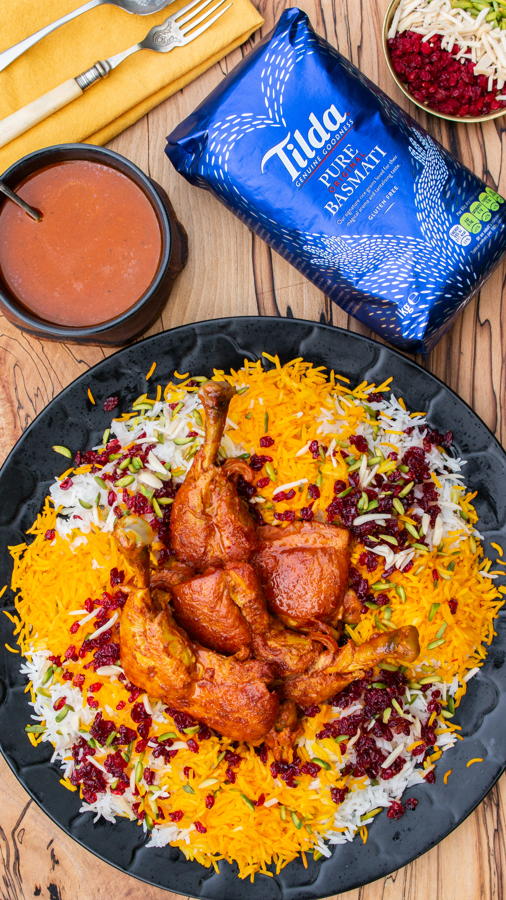
Most UK adults now cook an average of three different cuisines per week, according to the survey, with a third (31 per cent) of 18–34-year-olds trying out five cuisines per week. The most popular cuisines to cook from scratch are Indian, Chinese and Italian.
While rice is a key element of these preferred dishes and the research uncovered that many consumers still lack confidence when preparing the popular grain. More than a quarter of Brits have incorrectly cooked rice and 22 per cent admit it is more difficult to cook than it initially seems.
“Many consumers will tend to blame themselves if their rice dishes are disappointing and don’t consider that the grade of their rice could be the cause,” Jonathan Calland, head of external affairs at Tilda, notes.“There are many different varieties of rice in the world and there is a big difference in grades between the premium and more value ends of the market.”
He urged retailers to ensure they stock the highest quality ingredients to help shoppers create the best results in their kitchens.

Over the last 18 months, the increase in scratch cooking has had a direct and positive impact on sales of dry rice. As a premium brand, Tilda has seen strong value growth, particularly on Dry Rice formats. Over the last two years Tilda Dry Rice has grown its share with sales increasing 19 per cent vs the category’s 16 per cent. When looking specifically at block packs (below 5kg), Tilda has grown at twice the rate of the category (+22 per cent vs +11 per cent).
Calland informs us that the biggest distribution gains for the brand have been within the convenience channel.
“Although Total Rice has performed well within this channel over the last two years, Tilda has been a key driver for this growth, specifically in Symbols and Independents, with sales outperforming the category by more than three times,” he says, adding that Tilda Dry Rice sales grew 24 per cent in the channel vs the category at 4.4 per cent and Tilda Ready to Heat (RTH) was up 31 per cent MAT vs 11 per cent for total RTH.
Quickly and easily
Unsurprisingly, Tilda has put it marketing focus on the RTH range throughout the year, with a seven-figure investment, starting with the ‘Elevate Your Plate’ advertising campaign unveiled earlier this year. The first major above-the-line campaign for the steamed rice range looked to drive sales of Tilda’s 20-plus range of rice in a RTH format by educating consumers on how the products can turn any meal into masterpiece.
Perfectly portioned and ready in just two minutes, Tilda’ RTH range enables consumers to complete any tasty and nutritious mid-week meal. The core range suitable for impulse includes Tilda Pure Basmati Rice, Tilda Wholegrain Basmati Rice, Tilda Fragrant Jasmine Rice and Tilda Pilau Basmati Rice.
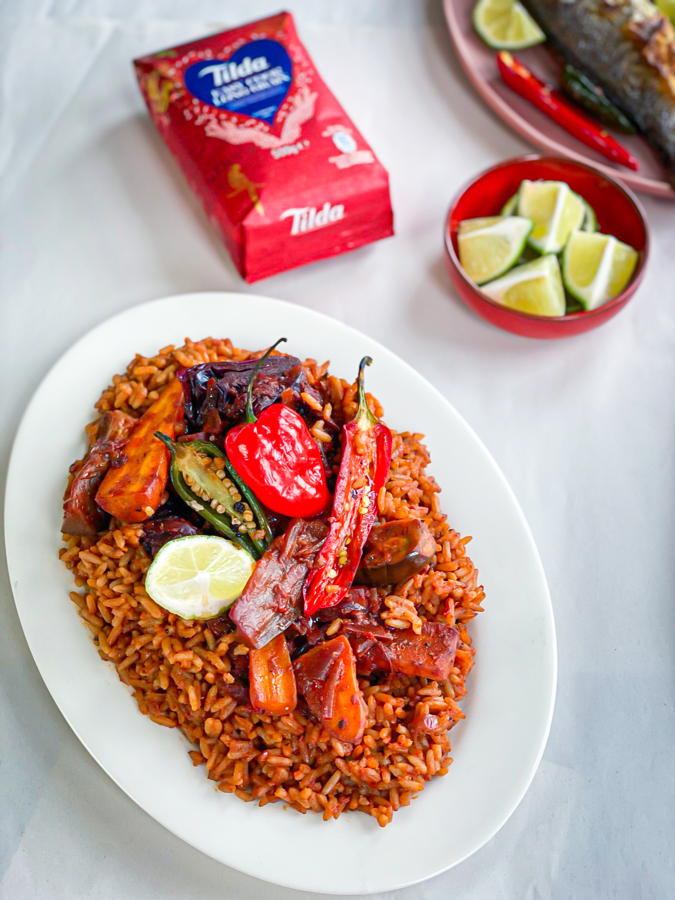
Veetee Rice is also focusing on this sub-category, promoting its new range of microwave rice trays in a campaign launched in July. The brand has partnered with comedian Katherine Ryan for a digital and social marketing campaign focused on kitchen hacks.
The Up Your Fluff Game campaign followed a study commissioned by Veetee that revealed a growing number of time-strapped Brits are turning to ‘life hacks’ to save time doing household chores.
Of the 1,002 consumers surveyed, Veetee found that 38 per cent praise life hacks for helping them save time, a third (34 per cent) find them a great way to save money and 28 per cent simply enjoy them for the satisfying pleasure. Veetee’s rice trays aim to help Brits do exactly that, as they cut out any time wasted fluffing around by guaranteeing what Brits struggle to deliver: perfectly fluffy rice every time.
“It’s clear from the research that whether it’s for cleaning or cooking, Brits love a life hack,” said James Brett, director of consumer and customer marketing at Veetee Rice. “But despite being a nation of rice lovers, it was surprising to see that over two thirds of respondents said they didn’t know how to cook perfect fluffy rice. That’s where we offer the number one life hack everyone needs – Veetee’s range of microwavable rice trays – which activate a steam filtered cooking process for fluffy rice in just two minutes.”
The brand’s range of rice trays went through a new look and feel earlier this year. As the trays are widely recycled, they are a great choice within the range of microwave rice products available.
Winning with smaller formats
As using quality products is integral to delivering the best results when cooking at home, well-established brand names that the consumers know and trust play a major role in convenience.
“As the No.1 Dry Rice brand and accounting for over 20 per cent of basmati branded value sales Tilda is a must stock for independent retailers,” Calland suggests.
Tilda’s Pure Basmati is particularly an extremely versatile choice as it works well as a side to many different dishes, due to its aroma and fluffy texture. “The grains absorb flavours of other ingredients such as herbs and spices during cooking, making it a sociable part to a whole host of cuisines. Its 1kg dry format is ideal in impulse as a top-up purchase or meal for tonight,” he adds.
Kelly Wyld, brand lead at Vibrant Foods which owns East End Foods and TRS, stresses on the need for various pack formats, particularly the smaller ones, at convenience stores.
“On-the-go and impulse products are the most popular items among consumers who do not plan to spend much time browsing. Both East End Foods and TRS offer smaller formats better suited to convenience buying. These include products like TRS Basmati Rice (500g) and East End Foods Pure Basmati Rice (500g),” she notes.
For East End Foods and TRS, the vast majority of their business comes from convenience and independents, she adds, who are more likely to offer a wider range of core products in various pack formats to accommodate varying consumer needs.
“Independents will have more flexibility in the types of products stocked – in terms of format and origin – in comparison to multiples who supply to a wider demographic and are less likely to cater to, for example a key South Asian audience,” she says.

She also urges retailers to make use of the increasing interest in free-from products. “A product like rice is well adapted to these trends, as it fits all major dietary restrictions thanks to it being gluten-free and vegan,” she says.
“Inclusion (of rice) in the free-from and vegan sections of retail stores will raise awareness of the product’s benefits and increase its visibility within the space.”
Since the 1970s, the sale of rice has gone up by 450 per cent in the UK, partly due to the cultural diversity of the UK. Other than British, there are more Indian restaurants than any other cuisine, and other rice-based cuisines, such as Japanese, Thai, Chinese and Indonesian account for more than 20 per cent of the UK’s restaurants now [Rice Association].
“Rice is one of the most versatile ingredients to stock up in one’s pantry. Not only is it quick and easy to cook, it also has a long shelf life and it’s an adaptable base for dishes from around the world,” Wyld says.
Noodles galore
Noodles are on track to become the UK’s ‘third carb’ after rice and pasta as their versatility continues to expand the usage occasion well beyond the traditional stir fry.
That’s the view of Debbie King, sales & marketing director at JK Foods, specialist importer and distributor of pan-Asian foods and owner of the Tiger Tiger brand, who says new ways of cooking with noodles are“de-seasonalising” sales and opening up huge year-round opportunities for retailers.
“Consumer needs continue to evolve – they’re now looking for quick, healthier, convenient and satisfying meal solutions to deliver restaurant-quality taste sensations at home,” adds King. “With the UK noodle market now in double-digit growth, and with 89 per cent of the UK population eating world foods at home, the focus is now on unlocking the emerging opportunities around this key alternative third carb, to follow what has been an unprecedented year for pasta and rice sales due to the impact of Covid-19.”
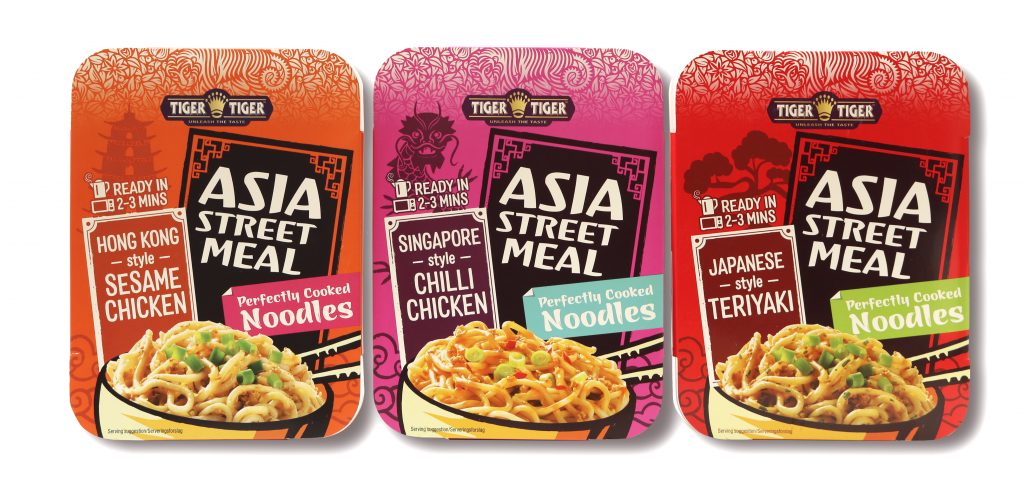
King likens the growth and development of the noodle category to that of rice, which over recent years has responded to changing consumer needs and evolved from plain, dry rice to “boil in the bag” innovation to flavoured rice in microwaveable pouch packs. A key ingredient in pan-Asian cuisine, noodles have experienced a rapid rise in popularity in recent years and are now in prime position to follow a similar path.
“Not so long ago all consumers could buy were dried noodles,” comments King. “Then we saw the introduction of ‘straight to wok’ soft noodles but there’s now a huge gap in the market and an opportunity for both soft and microwaveable noodles to echo the journey that rice has been on.”
Scope for growth
The South/East Asian foods have a 16.3 per cent market share in the World Foods isles. However, as the penetration level is at 78 per cent, there’s huge potential for growth when compared to pasta at 90 per cent penetration. Noodles, with 18 per cent share, are the second largest category that offers significant growth opportunity.
“Udon noodles, popularised by restaurant chains such as Wagamama, are the fastest growing (+39%), however rice-based noodles, which meet increased consumer demand for gluten-free options, are delivering the second highest growth at 20 per cent,” King notes.
Around 98 per cent of the East Asian category is based on just four main cuisines – Japanese, Chinese, Thai and Korean – all of which are experiencing double-digit growth. Of these, Japanese is the fastest growing – possibly because consumers identify with the healthy aspects of this cuisine but also because noodles are fast becoming the ‘to go’ snack of choice over the humble sandwich.
King observes that innovation by noodle brands has also played a major role in opening up the market significantly in recent months.
“The incredible versatility of noodles – not just in stir fries, but in Pho soups, salads and as an alternative to non-Asian meals -means we’re now targeting not only the traditional World Food shoppers, but also new ‘foodie’ consumers, on-trend chefs and home cooks, and those with an interest in, or requirement for, free from,” she says, recommending their branded ranges of noodles for retailers to capitalise on these growing trends.
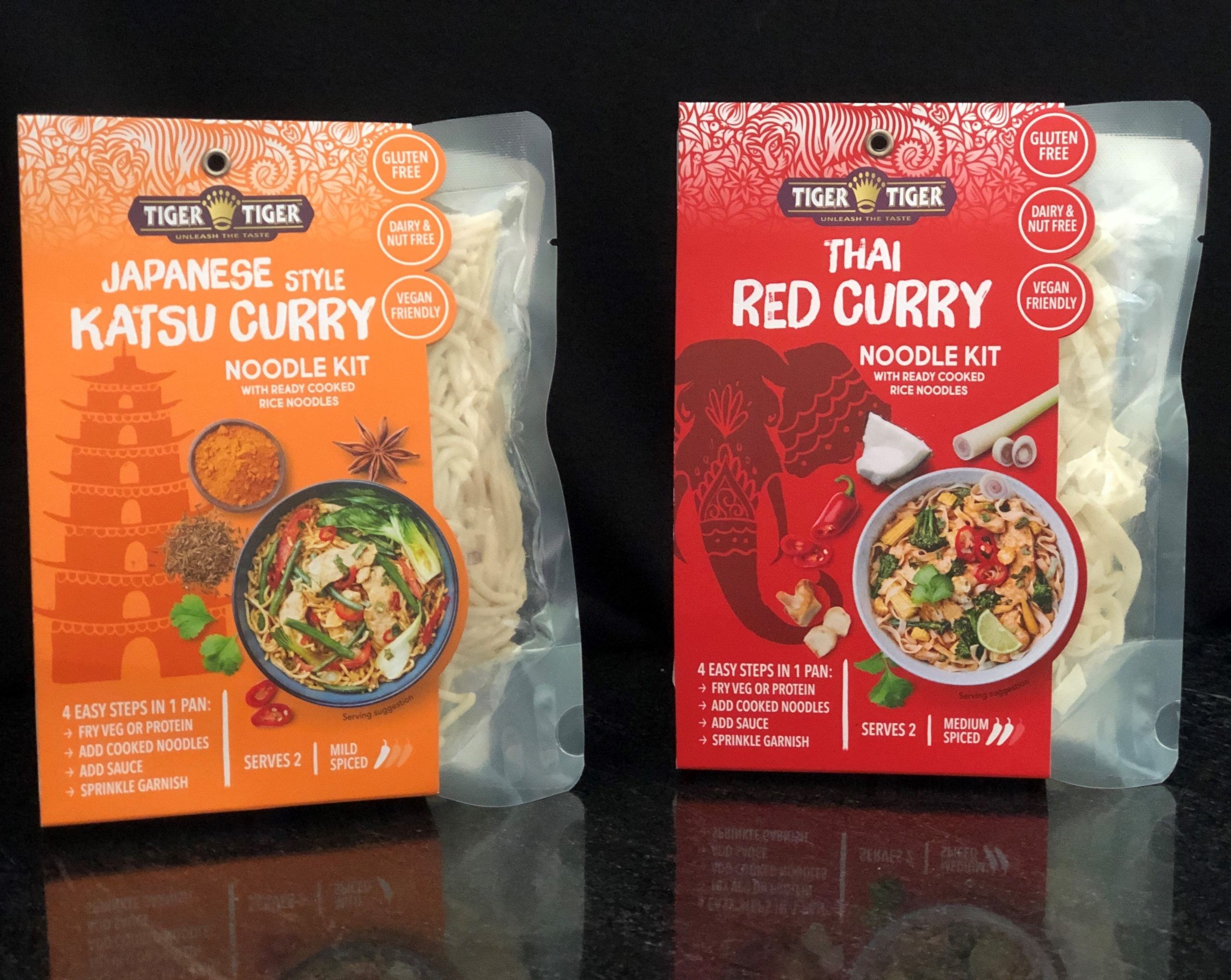
For example, Tiger Tiger, JK Foods own brand, has just launched a new range of free-from noodle meal kits in six flavours, to help bring authentic restaurant quality meals out of the East and into the home.
“Until now there has not been a range of Asian-inspired, free from noodle meal kits available in the UK as they tend to have been only Thai-based, so we’re delighted to be bringing all these wonderful flavours to market while also meeting the needs of our health conscious free-from consumers,” King adds.
Independent retailers should also be aware of the four main segments driving growth of the East Asian foods category – soy sauce, noodles, ingredients and bases and enhancers – if they are to maximise sales as the popularity of home cooking is bringing with it increased demand for authenticity of flavour and ease of preparation.
“It’s therefore critical that independents merchandise effectively in order to capitalise on this growing trend – ‘block merchandise’ by cuisine and/or occasion to make it easier for shoppers to locate and buy all the ingredients they need to replicate the at-home restaurant experience, and highlight special deals to encourage spontaneous purchase.” King suggests.
She adds that JK Foods has recently updated many of the core pack designs, maximising on-shelf visibility and delivering an easy shopping experience for customers.
It’s pasta night!
Italian cuisine performed well in the lockdowns last year, driving on the pasta sales. As the store cupboard staple lends itself to a number of meal occasions, it’s no wonder then that the Italian food (pasta/risotto) has been the most popular evening dish during the pandemic.
According to Kantar data, between April and November last year, pasta/risotto garnered a 11.2 per cent share of the total evening meal occasions, with roast dinners taking a distant second (5.7 per cent). Also of relevance here, Indian food (4.9 per cent) and oriental food, including Thai (4.5 per cent) came in the next two positions.
The trend towards vegan and vegetarian meals is taking roots in the pasta category, as vegetarian pasta popping up in the top ten dishes that have seen the fastest growth since the start of the pandemic.
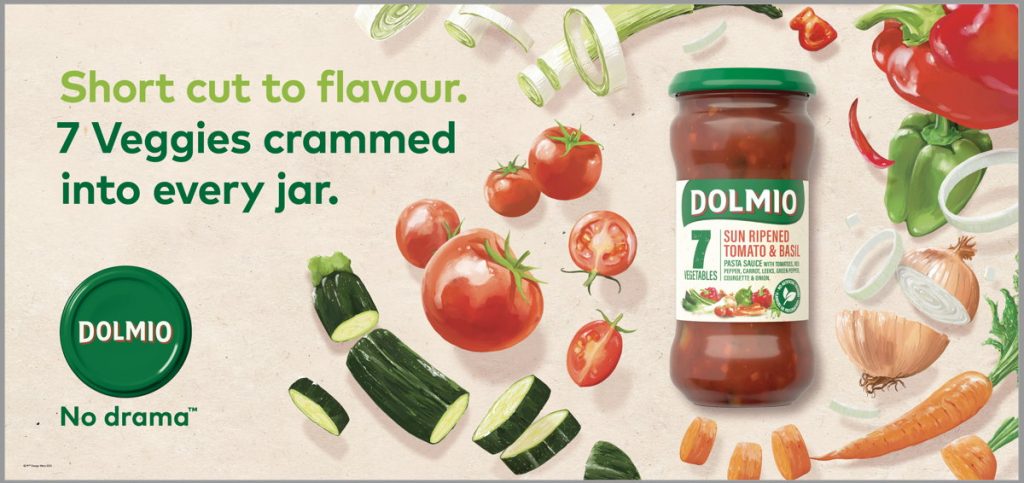
Dolmio is tapping into this growing trend of shoppers seeking healthier alternatives, with the launch of 7 Vegetables Pasta Sauce in three flavours.
“We’re excited to launch Dolmio 7 Vegetables Pasta Sauce a jar full of seven different varieties of delicious veg, designed to help the whole family pack more flavour, variety and vegetables into their diet,” Giulia Somma, marketing manager at Mars Food, said.
“Our ambition at Dolmio is to help more families enjoy drama-free dinnertimes together by providing healthy products which are quick to prepare and, of course, delicious.”
The launch responds to the commitment made by Mars Food at the start of 2021 to deliver 5.5 billion healthy meals globally by 2025 – including adding 4 billion servings of vegetables in the next 5 years across the world.
“Dolmio 7 Vegetables Pasta Sauce is a great example of some of the innovation we’re bringing to deliver on our goal and help the UK eat more fruit and vegetables as each serving contains two of your five a day,” Somma added.
Fresh frozen pasta brand Beroni meanwhile looks to capitalise on another pandemic trend that seems to linger on.
The product targets families that are increasingly looking for quick meal solutions: it can be cooked in boiling water in only 30 seconds; microwaved at 800W for 2 minutes and 30 seconds or pan or wok-fried in 3 minutes. It contains no preservatives or additives. It is also suitable for vegans.
“Many families want to eat well and eat healthily but have pressures on their time, so to be able to bring them the quality and convenience of Beroni is very exciting,” commented Andrew Cole of Beroni.
The brand notes that pasta is “one of the four items that households expect to continue consuming more of moving forward.”
Developed and manufactured in the UK, Beroni pasta dough is freshly prepared by mixing the finest durum wheat semolina with water. The fresh dough is then shaped into penne, fusilli or macaroni formats before being cooked ‘al dente’ then immediately frozen to preserve its freshness.
Pasta to get pricier?
Meanwhile, retailers may need to keep an eye on prices as a disastrous growing season for durum wheat means the product may get costlier in the coming months, impacting purchase decisions.
Shortage of durum wheat, a key ingredient in pasta, is going to push the prices up, said Jason Bull, director of Eurostar Commodities, which imports more than 10,000 tonnes of food ingredients each year.
A scramble for durum wheat has pushed its price up nearly 90 per cent this summer.
Bull added that the magnitude of durum wheat’s cost increase imply that it will be passed on to consumers. He estimated a 500g packet of spaghetti could increase in price by 60p to £1.80, and that too, starting this month itself as higher costs had already reached the factory gate.
“The market is completely out of control and as a result there has been an approximately 90 per cent increase in raw material prices as well as increases in freight,” Bull said. “This is a dire situation hitting all semolina producers and all buyers of durum wheat across the globe. Companies are buying at record high prices.”
The crisis has been triggered by a worsening situation in major durum wheat producer Canada, where the crop forecast has been revised down by more than one-third from five million tonnes to only 3.4 million tonnes.
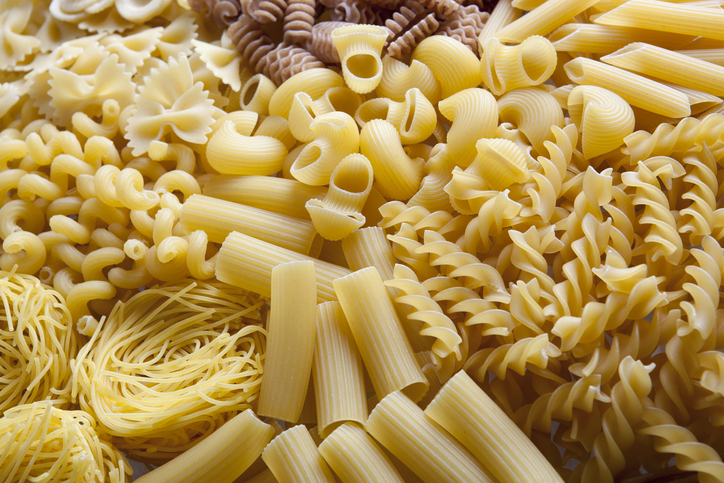
The seriousness of the situation can be ascertained by the fact that the market is predicting there will not be enough durum wheat to meet global demand.
Durum wheat is the second most cultivated species of wheat after common wheat and is ground down into semolina to make a variety of different products including pasta and macaroni.
The unusual extreme heat in Canada has been cited for the shortage. The country has seen hardly any rainfall since the crop was planted.Furthermore, French wheat also reportedly had a poor year because of excessive rain affecting quality and yield.
There are also supply issues in Italy, with one food industry expert predicting a packet of spaghetti could end up costing up to 50 per cent more.







 To use this website you must be aged 18 years or over. Please verify your age before entering the site.
To use this website you must be aged 18 years or over. Please verify your age before entering the site.










